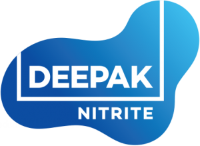The rating upgrade and revision in outlook to Stable for Deepak Nitrite Limited takes into account the continued improvement in the consolidated financial profile

ICRA has reaffirmed the long-term and short term rating for Rs. 490 crores bank facilities and Rs. 200 crores Commercial Paper (CP) of Deepak Nitrite Limited. The outlook on the long-term rating has been revised to positive from stable. The rating agency has also upgraded long term rating from to and re-affirmed short term rating for Rs. 756.27 crores bank facilities of Deepak Phenolics Limited (DPL), a wholly owned subsidiary of the company. The outlook on the long-term rating has been revised to Positive from Stable.
The rating upgrade and revision in outlook to Stable for Deepak Nitrite Limited (DNL) takes into account the continued improvement in the consolidated financial profile of the company during FY2021 despite the slowdown in demand and production loss due to Covid-19 in Q1 FY2021. ICRA notes that, given the healthy cash accruals, the company has reduced its debt levels by pre-paying ~Rs 200 crore debt at its subsidiary, Deepak Phenolics Limited (DPL), during 9M FY2021. Coupled with improved profit margins, this has resulted in sharp improvement in the leverage and coverage indicators of the company.
Key rating drivers and their description
Credit strengths
Long operating history and established track record in the global chemical intermediates industry - DNL has been operating in the chemical industry for nearly five decades. Over the years, the company has grown to become a market leader in the domestic market for inorganic intermediates (sodium nitrite and sodium nitrate), nitro toluenes and fuel additives. It is also among the top three global players for xylidines, cumidines and oximes.
Diversified product profile mitigating risk associated with cyclicality in different product segments - While the company started with a limited portfolio of low-value bulk chemicals, it has grown its product portfolio to include high-value speciality chemicals for multiple end-user applications. Currently, it has a product portfolio of over 100 products (including its derivatives). The company has also added pharma intermediaries and more agro-chemical products to its portfolio over the years. The regular introduction of new products has helped DNL to mitigate the cyclicality risk related to a particular product segment.
Multi-purpose manufacturing facility, with significant backward and forward integration linkages - The company’s production facilities include processes that allow vertical integration for most products, leading to significant cost savings. Also, its facilities are designed to provide flexibility to change the product mix to suit market requirements.
Healthy improvement in financial profile - DNL reported a significant growth in revenue and operating profitability in FY2020, driven by a sharp turnaround in the PP segment. While the average realisations for the performance products declined to erstwhile levels in 9M FY2021, its impact was partly mitigated by the higher margins available on the FNS segment and the phenolics segment. With healthy cash accruals, the company has reduced its debt levels by pre-paying ~Rs. 200 crore debt at DPL during 9M FY2021. As a result, the Total Debt/OPBITDA improved to less than 1.0 time in 9M FY2021 from 2.8 times in FY2019.
Healthy ramp-up of phenolics and IPA operations at DPL – DPL’s phenol-acetone plant showcased over 100% capacity utilisation in 9M FY2021 in spite of the plant shutdown during April 2020 due to the Covid-19 pandemic, resulting in healthy revenue and cash flow generation for DNL on a consolidated basis. DPL also commissioned an IPA plant in April 2020 and its utilisation reached 85% during 9M FY2021. IPA is extensively used as a sanitiser, and with the Covid-19 pandemic, the global demand for IPA peaked in Q1 FY2021. With timely commissioning, DPL has been able to sell its product in the domestic and global markets, while generating healthy cash flows.
Credit challenges
Profitability exposed to volatility in raw material prices, although reduced in certain products through formula-linked price contracts - Prices of a few of the company’s key products are linked to the movement of crude oil prices. The change in price levels, however, varies across product categories and is not commensurate with the change in crude price due to formulalinked pricing. Also, the prices of certain key products, such as sodium nitrite, TFMAP, OBA and DASDA, which formed about 40% and 43% of DNL’s standalone sales in FY2020 in 9M FY2021, respectively, are delinked from movement in crude oil prices.
Capacity expansion and efficiency improvement capex planned over near term - While DNL had sizeable capex plans for FY2021, it has deferred part of the same to next year, given the Covid-19 uncertainties. The company now has a planned capex of ~Rs. 950-1,000 crore to be incurred over FY2022-FY2023 towards expansion projects in the BC and FNS segments and addition of downstream products in the phenolics segment. Such sizeable capex plans expose the company to execution and market risks, although mitigated to some extent by the track record of the company in completing its past projects, including the phenol-acetone project under DPL, in a successful manner.
Liquidity position: Strong
At a consolidated level, DNL’s liquidity position remains strong with a healthy annual fund flow from operations of Rs. 583 crore in FY2020 and surplus free cash and liquid investments of ~Rs. 200 crore as on December 31, 2020. DNL also had a sanctioned working capital facility of Rs. 670 crore at a standalone level and Rs. 480 crore at DPL as on December 31, 2020, the average utilisation of which remained moderate at ~40% (largely towards non-fund based usage at DPL) over the past 12 months. Further, DNL has an additional sanctioned loan facility of Rs. 150 crore from Axis Bank, which can be availed for any capex if the need arises. The loan terms are favourable, with an 18-month moratorium period from disbursement and a 10-year ballooning repayment schedule.
Subscribe to our newsletter & stay updated.